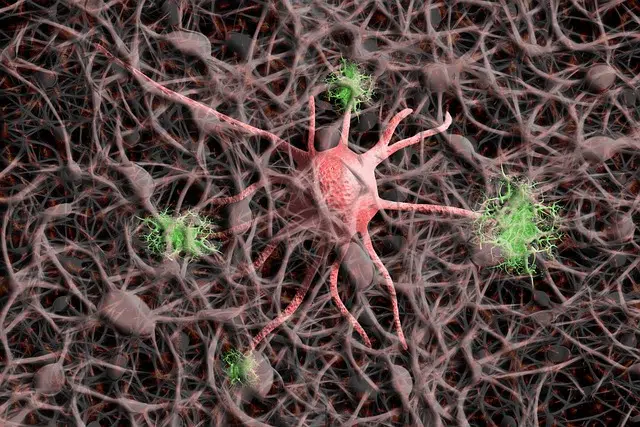
Nerves are fibers that conduct impulses between the central nervous system and various parts of the body.
A nerve is a set of fibers of a particular type that conducts impulses between the central nervous system and different parts of the body. This group has the shape of a whitish cord and the ability to transmit electrical waves (nerve impulses or action potentials) at high speed.
Typically, the nerve impulse originates in the cell body of a neuron and passes from the axon to the end; Through the synapse , it is transmitted to another neuron.
Types of nerves
There are different types of nerves: afferents are those that carry sensory signals from the skin or other organs to the brain ; The efferents , on the other hand, transfer the impulse from the brain to the glands and muscles .
Depending on their origin, nerves can be cranial (originating in the medulla or brain), spinal (originating in the spinal cord) or from the sympathetic nervous system . Depending on their function, there are sensory nerves (they transmit stimuli from the sense organs), motor or centrifugal (they carry movement orders to the muscles and glands), sensitive or centripedal (they conduct external excitations to the nervous centers) and mixed nerves . (they function as motors and sensors).
An emotional turmoil
On the other hand, the concept of nerves is usually related to the tension or emotional agitation that a person experiences. It can refer to very diverse situations, since on the one hand it denotes self-doubt in the face of certain pressures, and on the other hand it resembles reactions related to hysteria. Putting the term in context, we can give the following example sentences: “My nerves did not let me sleep all night,” “My nerves betrayed me and I could not speak,” “Suddenly he had a nervous breakdown and began to break everything."
In the first two cases, it is noted that the person had to face something (or someone) that surpassed them; It could be a very difficult academic exam, a job interview, or also a long-awaited romantic encounter. These are moments that generate a large volume of expectations in those who must go through them, and the result is a kind of emotional overload that prevents us from acting normally in front of them.

The idea of nerves can be linked to emotional turmoil or tension.
nervous breakdown
The last sentence speaks of a very different situation: nervous attacks may or may not have the same origin as the other cases, being based on insecurity in the face of a challenge that intimidates the individual given its difficulty. However, regardless of its root, it is a way of channeling emotions opposite to blocking; It is a syndrome studied by psychology and whose common symptoms are screaming , crying , verbal and physical attacks , with the addition of showing a clear lack of control.
It is essential to highlight this last part, because when an individual suffers a nervous breakdown they lose control of their actions; On the other hand, it is common for witnesses of said disorder to think that it is gratuitous aggression, a lack of education or a desire to attract attention; and nothing could be further from the truth.
To illustrate a nervous breakdown, let's take the example of a young executive who works in an office with dozens of people and who leads an apparently calm and orderly life, who studied hard to get his job and who is considered a very intelligent person. for its environment; One day, an argument with a colleague leads him to take a chair and attack the furniture and computers, as if he had been spontaneously possessed by a demon. The question those who think this is a voluntary act should ask themselves is why would this individual want to throw away so much effort?
Finally, the Nerves were a Belgic tribe found in northern Gaul during the 1st century BC , east of the Scheldt River.
